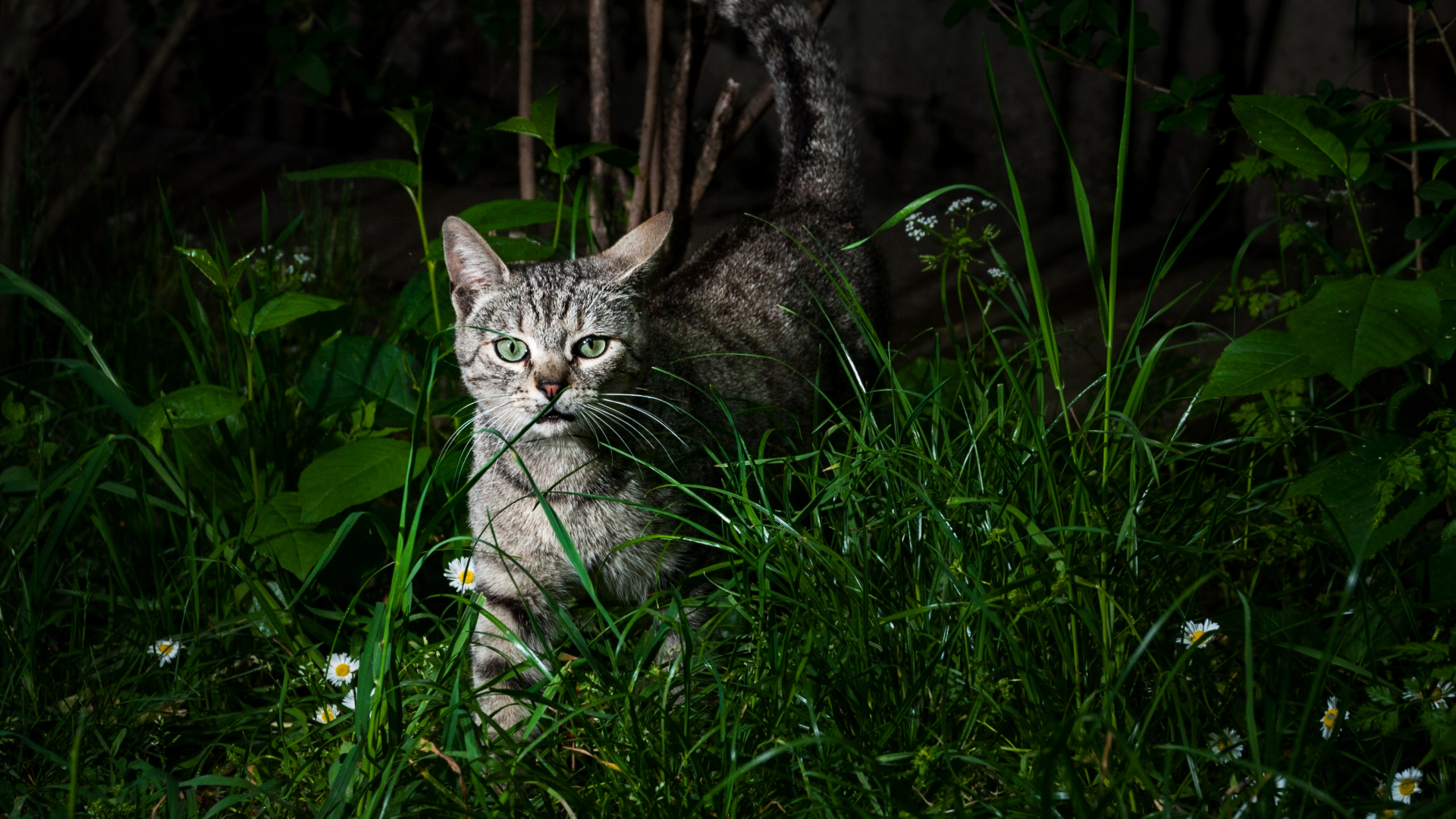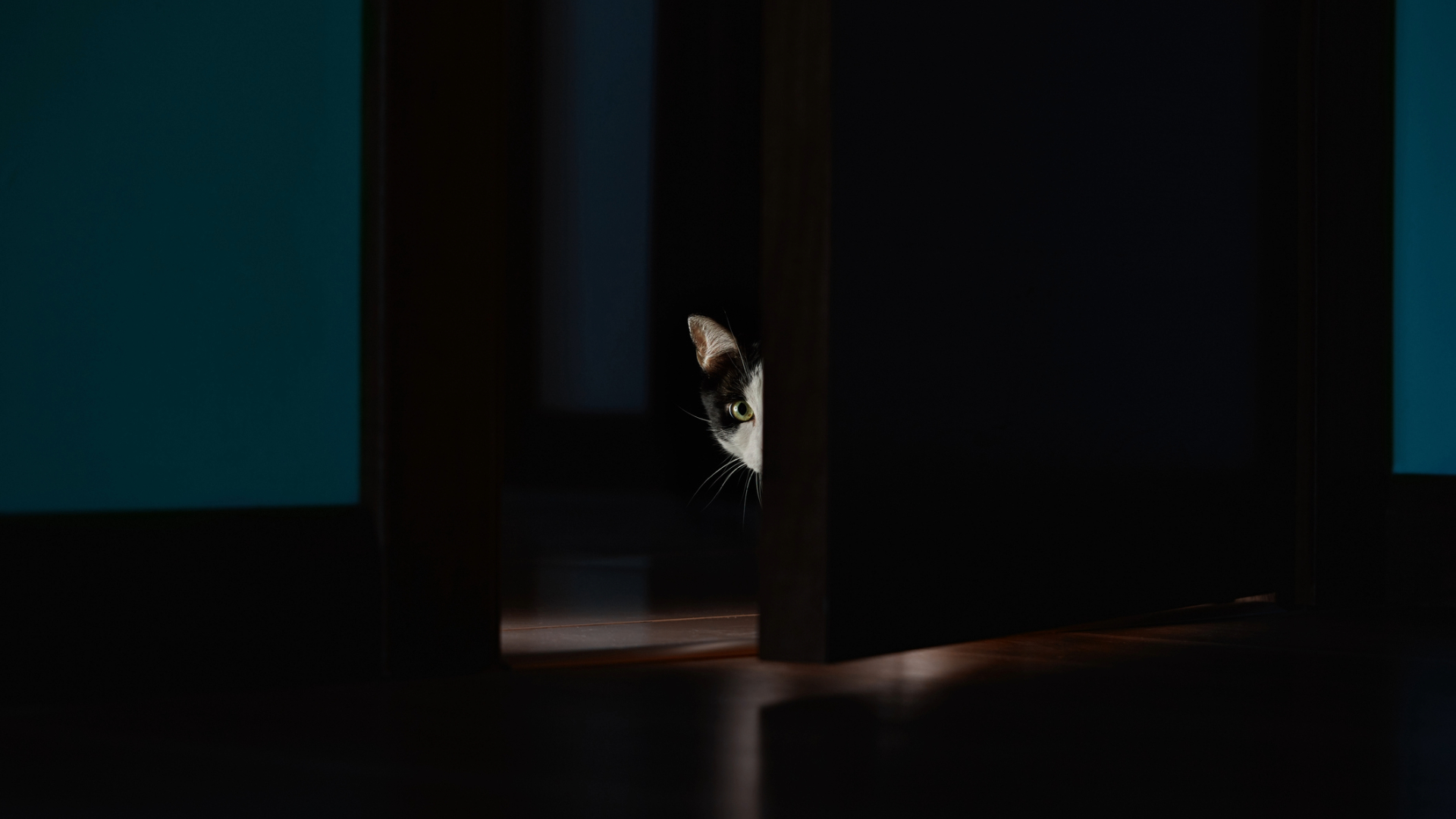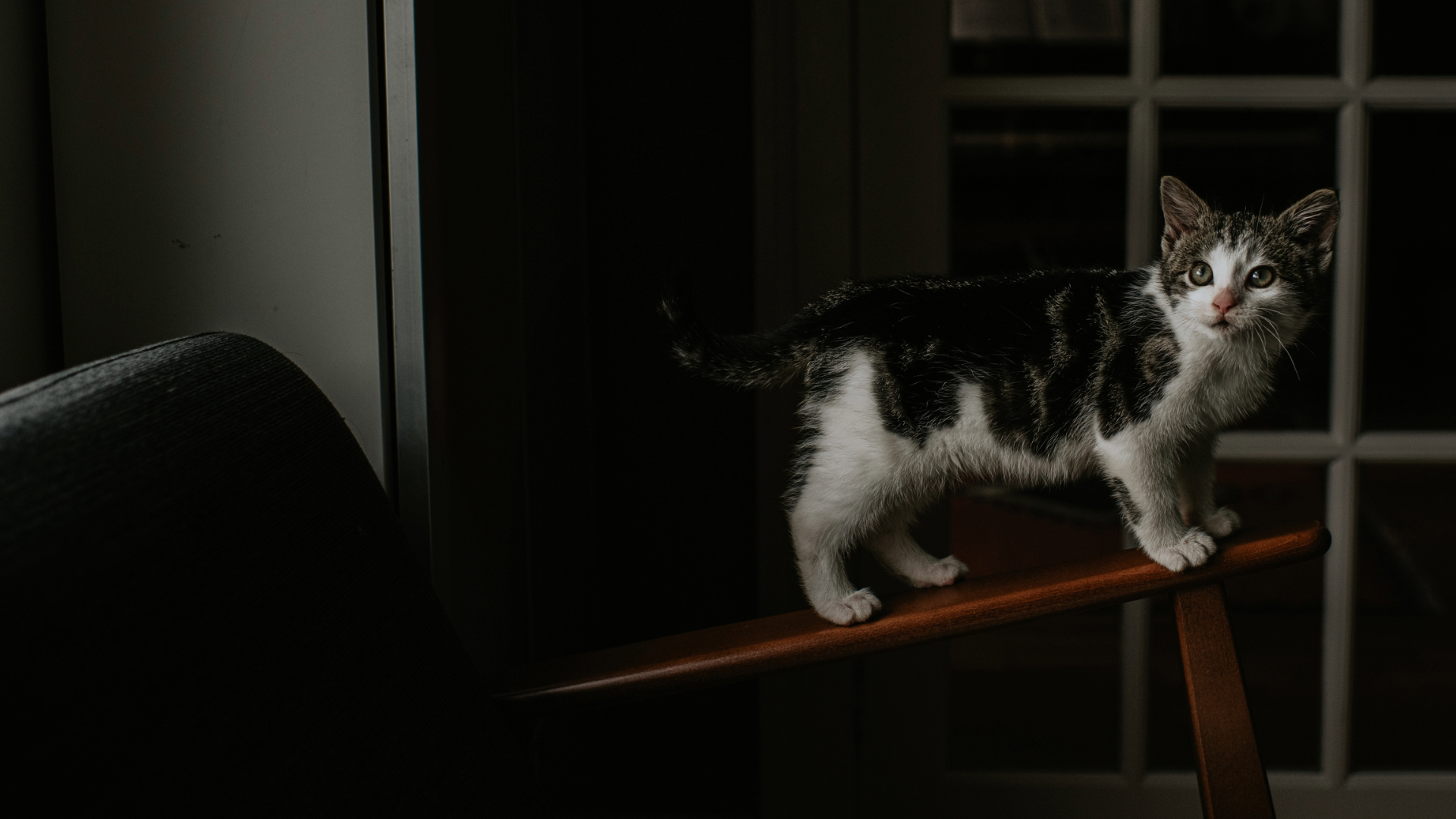Why do cats play at night? A vet reveals the answer (and how to stop them waking you up)
A vet shares her top tips for curbing your cat’s midnight mischief

Why do cats play at night? If you’re one of the many cat parents being woken by the unmistakable sound of paws thundering across the floorboards at 3am, you’re in good company.
I have been a vet for more than 13 years and I’ve worked with countless cats and their owners to help manage nocturnal behavior. While it can be frustrating (especially when you’re losing sleep!), it’s also completely normal. Understanding why cats become so lively at night is the first step to helping them – and you – settle down more peacefully.
In this article, we’ll explore the natural instincts that drive your cat’s evening energy, what age they tend to mellow out, and how to manage nighttime play so everyone can get a restful night’s sleep. If you need ideas to keep your cat entertained during the day instead, don’t miss our guide to the best cat toys for indoor cats.
Why do cats play at night?
Cats are what we call crepuscular, which means they’re naturally most active during the twilight hours of dawn and dusk. This behavior is deeply rooted in their ancestry. In the wild, these times of day offer the perfect blend of opportunity and advantage for hunting.
Prey animals like mice, insects, and small birds tend to be more active at these hours, and the low light gives cats an edge when it comes to stalking and pouncing unseen.
Even though your modern house cat might enjoy a comfortable life with regular meals served in a bowl, those ingrained hunting instincts haven’t disappeared – they’re just redirected.

So, when your cat seems to spring to life just as you're settling down for the night, it’s not them being awkward or naughty – it’s simply their biology at play. Their internal body clock is telling them it’s time to be alert and active.
Get the best advice, tips and top tech for your beloved Pets
Add to that the fact they’ve likely spent most of the day dozing peacefully while you were out or at work, and by evening, they’ve got plenty of pent-up energy to burn.
This nocturnal energy burst is especially noticeable in kittens and younger cats. They’re naturally more energetic and inquisitive, always looking for new things to chase, climb, or bat around.
Without another feline playmate to tire them out, they may turn their attention to whatever moves, including your fingers, feet, or toes under the duvet. Night time zoomies, surprise pounces, and dramatic sprints down the hallway are all part of their normal behavior.
While it might be a little frustrating for tired humans gearing up to go to bed, it’s a sign of a happy, healthy, and well-adjusted feline.
At what age do cats calm down at night?
There’s good news: most cats do calm down with age. Kittens and young cats (up to around 18 months) are usually the most energetic, and their nocturnal antics can be especially intense.
This is perfectly normal, and with time, most cats settle into a more predictable routine. By the time they reach adulthood, many cats become more relaxed, especially if they’ve had consistent routines and plenty of daytime enrichment. Senior cats tend to be quieter still, often preferring their cozy beds to a midnight chase.
That said, every cat is different. Some individuals remain lively well into their golden years. The key is to channel that energy appropriately and establish a calming, consistent routine to encourage night time rest.

How to stop a cat from being active at night
If your cat’s night time energy is interfering with your sleep, here are some practical strategies to help:
1. Increase daytime play and stimulation:
One of the best ways to reduce night time zoomies is to ensure your cat is burning off their energy during the day. Schedule multiple short play sessions using toys that mimic prey, like feather wands, balls, or wind-up toys that they can chase.
Cats are natural hunters, so simulating that behavior with some of the best interactive cat toys helps satisfy their instincts and tires them out.
2. Feed a meal just before bedtime:
A full tummy often leads to a long nap. Try feeding your cat their main meal just before you go to bed. In the wild, a cat would typically hunt, eat, groom, and sleep. This means owners can use that pattern to their advantage.
It may also help to avoid giving late night snacks to your cat after they have been fed their evening meal. This may disrupt their sleeping patterns and also lead them to expect food at random times. Consider using one of the best food puzzles or slow-feeder bowls to make dinner time more mentally stimulating for your cat.
3. Rule out medical causes
If your cat's night time activity has suddenly started to be excessive or is accompanied by other unusual behaviors, make sure to consult your vet to rule out any underlying medical conditions.

4. Don’t reinforce attention-seeking behavior
It’s tempting to respond when your cat pounces on your feet or meows outside your door – but giving them attention (even negative attention!) can reinforce the behavior.
Instead, try to ignore disruptive antics and reward calm, quiet behavior when it happens. If your cat is persistently disruptive, consider setting up a separate sleeping area at night.
5. Provide night time enrichment
If your cat insists on being up at night, make sure they have something to do that isn’t waking you up. Offer a few quiet toys, puzzle feeders, or a window perch for bird-watching.
This way, they can entertain themselves safely and independently without needing your involvement, leaving you to get some well deserved rest.
6. Create a calming evening routine
Just as we wind down with quiet activities before bed, cats benefit from a predictable routine. Set aside time for interactive play, followed by a calm grooming session or a treat. This helps signal that it’s time to settle.
Consistency is key – stick to roughly the same bedtime each night so your cat knows what to expect.
Feliway Classic Diffuser | Amazon
If your cat struggles to relax in the evenings, try using a calming pheromone diffuser like the Feliway Classic Diffuser. It mimics natural feline facial pheromones to help reduce stress and promote a sense of calm in your home – ideal for cats who get the night time zoomies. Plug it in near their sleeping area for round-the-clock support.
Night-time play in cats is a perfectly natural behavior, rooted in their instincts as crepuscular hunters. While it can be a little disruptive for owners, understanding why your cat is most active at night can help you manage their energy in a positive way.
With the right combination of daytime enrichment, interactive play sessions, and a consistent routine, most cats can learn to adjust their activity levels to better align with household life. As always, if night-time behavior becomes excessive or concerning, it’s worth checking in with your vet to rule out any underlying health issues.
Read next: Why does my cat bring me toys? or reasons why your cat wants to play all the time

Emma graduated from the Royal Vet College in London in 2011. She has a keen interest in surgery and went on to do a postgraduate certificate in small animal surgery and was then awarded advanced practitioner status in the same discipline.
Edited by Megan Milstead.
This page was last updated in April 2025 by Emma Chandley.
Emma Chandley is a vet with 14 years of experience and has a keen interest in surgery. After graduating from the Royal Vet College in London in 2011, she achieved a postgraduate certificate in small animal surgery from the British Small Animal Veterinary Association and Nottingham Trent University. She was then awarded advanced practitioner status in the same discipline by The Royal College of Veterinary Surgeons. She has a black Labrador and two pygmy goats at home.

